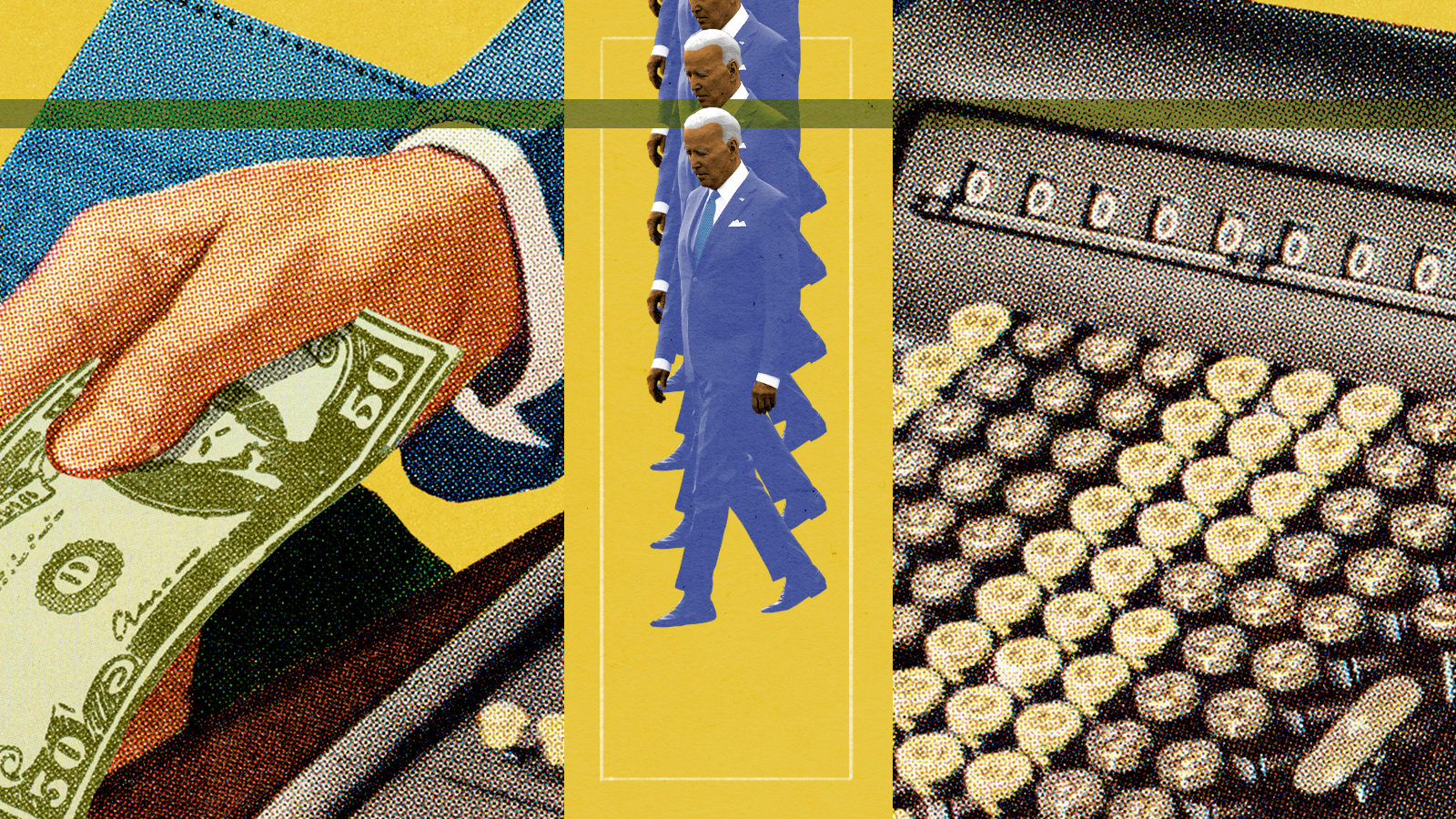Tackle inflation by tightening Corporate America's belts


A free daily email with the biggest news stories of the day – and the best features from TheWeek.com
You are now subscribed
Your newsletter sign-up was successful
The Federal Reserve plans to fight inflation by raising interest rates this year, regardless of the uncertainty caused by Russia's war in Ukraine. It's a remedy that's been used more than once in the past, but this time around, all it will do is throw millions of people out of work without addressing the true causes of the problem.
It may be time for something more radical: limited price controls.
While some argue that the recent resurgence of inflation is caused by the economy overheating, the reality is that the causes of inflation are primarily on the supply side of the economy. Instability caused by COVID-19 continues to plague countries in our supply chains, and uncertainty over U.S. trade policy, such as holdover Trump-era tariffs and the proliferation of sanctions only make it worse. Interest rate hikes would do little to help these problems.
The Week
Escape your echo chamber. Get the facts behind the news, plus analysis from multiple perspectives.

Sign up for The Week's Free Newsletters
From our morning news briefing to a weekly Good News Newsletter, get the best of The Week delivered directly to your inbox.
From our morning news briefing to a weekly Good News Newsletter, get the best of The Week delivered directly to your inbox.
It's better to address them directly.
An immediate solution would be to impose limits on certain price increases through the federal government, as was done during and after World War II, and again under Nixon. Laws preventing price gouging during emergencies also still exist in many states. Ideally, these would remain until the global economic situation stabilizes and companies create more disruption-tolerant supply chains. Such controls would not be so severe that companies can't make any profit, but be sufficient to prevent consumers from being ripped off by companies using the excuse of inflation to massively increase their profit margins during the current troubles — Matt Stoller estimates that 60 percent of price increases have gone to increase profits rather than compensate for increased costs.
It's certainly worth a try, since it is certain is that the supply of imported semiconductors, oil and gas, construction materials, and other disrupted elements in U.S. supply chains won't increase because of contractionary monetary policies. Supplies may even decrease, creating a stagflation cycle, with prices going up while the economy is slowing down, as happened in the 1970s.
We are at risk of moving from an equilibrium that is helping ordinary Americans into good-paying jobs, despite high inflation, to one where corporations make exorbitant profits, but unemployment and low wages are widespread, with equally high inflation.
A free daily email with the biggest news stories of the day – and the best features from TheWeek.com
To avoid this outcome, it's time for politicians to think outside the interest-rate box and take bolder action.
Saoirse Gowan is a writer and researcher with a focus on public policy from a left perspective. She was born and raised in Ireland by an American mother and Irish father, and moved to Washington, D.C. in 2018. She currently lives in Hyattsville, MD, and spends her free time on art and dancing.
-
 Political cartoons for February 14
Political cartoons for February 14Cartoons Saturday's political cartoons include a Valentine's grift, Hillary on the hook, and more
-
 Tourangelle-style pork with prunes recipe
Tourangelle-style pork with prunes recipeThe Week Recommends This traditional, rustic dish is a French classic
-
 The Epstein files: glimpses of a deeply disturbing world
The Epstein files: glimpses of a deeply disturbing worldIn the Spotlight Trove of released documents paint a picture of depravity and privilege in which men hold the cards, and women are powerless or peripheral
-
 Trump wants a weaker dollar, but economists aren’t so sure
Trump wants a weaker dollar, but economists aren’t so sureTalking Points A weaker dollar can make imports more expensive but also boost gold
-
 Will Trump’s 10% credit card rate limit actually help consumers?
Will Trump’s 10% credit card rate limit actually help consumers?Today's Big Question Banks say they would pull back on credit
-
 Can Trump make single-family homes affordable by banning big investors?
Can Trump make single-family homes affordable by banning big investors?Talking Points Wall Street takes the blame
-
 What will the US economy look like in 2026?
What will the US economy look like in 2026?Today’s Big Question Wall Street is bullish, but uncertain
-
 Is $140,000 the real poverty line?
Is $140,000 the real poverty line?Feature Financial hardship is wearing Americans down, and the break-even point for many families keeps rising
-
 Fast food is no longer affordable for low-income Americans
Fast food is no longer affordable for low-income AmericansThe explainer Cheap meals are getting farther out of reach
-
 Why has America’s economy gone K-shaped?
Why has America’s economy gone K-shaped?Today's Big Question The rich are doing well. Everybody else is scrimping.
-
 From candy to costumes, inflation is spooking consumers on Halloween this year
From candy to costumes, inflation is spooking consumers on Halloween this yearIn the Spotlight Both candy and costumes have jumped significantly in price
